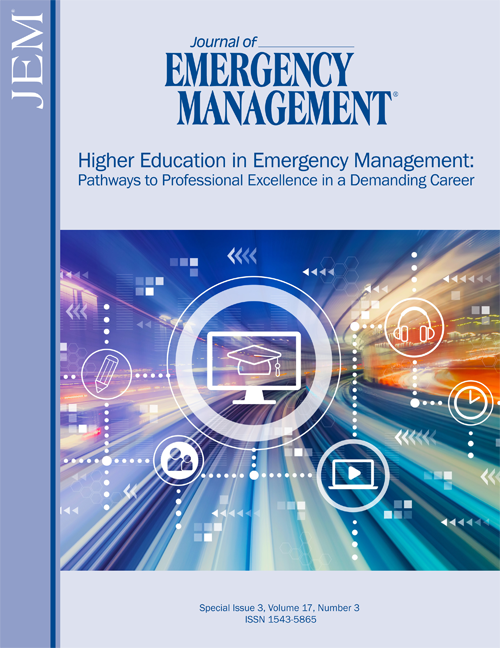Building the bridge between education and experience: The case for experiential learning in emergency management education
DOI:
https://doi.org/10.5055/jem.2019.0416Keywords:
Experiential Learning, EM education, career opportunitiesAbstract
While the increasing professionalism of the Emergency Management (EM) field has brought great benefits and opportunities, increasingly the bar to entry into the profession has been on a steep incline with ever increasing mandatory and preferred requirements for EM job applicants it seems. For the EM student or new EM graduate with limited experience opportunities, this can be a severe handicap in the quest to secure a viable entry level EM position. Experiential Learning provides an excellent solution to this problem.
References
Wurdinger D, Carlson J: Teaching for Experiential Learning: Five Approaches that Work. Lanham, MD: Roman & Littlefield Education, 2010.
Kuh G: High-impact educational practices: What they are, who has access to them, and why they matter. Association of American Colleges and Universities. 2008. Available at https://www.aacu.org/leap/hips. Accessed June 15, 2017.
Paulk A: Experiential Learning Initiative: Emerging Leaders Project. Florence, AL: University of North Alabama, College of Arts and Sciences, 2017.
National Association of Colleges and Employers (NACE): Job outlook 2016: The attributes employers want to see on new college graduates’ resumes 2016. Available at http://www.naceweb.org/career-development/trends-and-predictions/job-outlook-2016-attributes-employers-want-to-see-on-new-college-graduates-resumes/. Accessed June 15, 2017.
Published
How to Cite
Issue
Section
License
Copyright 2007-2025, Weston Medical Publishing, LLC and Journal of Emergency Management. All Rights Reserved.
Leave Nobody Behind: Emergency Management in a More Inclusive Way is a trademark of Journal of Emergency Management






